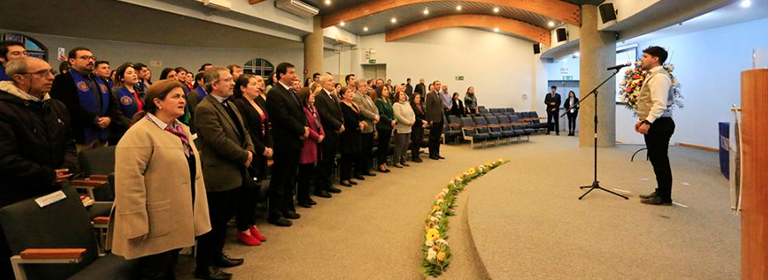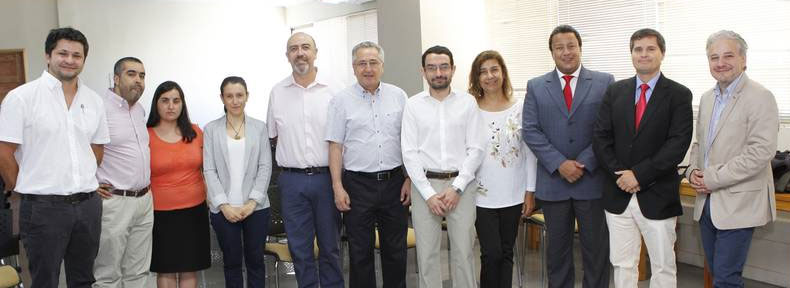In his most recent research, the director of the Department of Philosophy at the Universidad Católica del Maule, Javier Agüero, also the author of several books, argues that the figure of immigrants dismantles the idea of homogeneous people, deterritorializes politics, and can expand democracy itself.
 Although a high number of people migrate by choice, many others do so out of necessity, forced mainly by economic crises, natural disasters, and political, ethnic, religious or racial persecution. Travel does not always guarantee a safe and dignified future.
Although a high number of people migrate by choice, many others do so out of necessity, forced mainly by economic crises, natural disasters, and political, ethnic, religious or racial persecution. Travel does not always guarantee a safe and dignified future.
“The Latin American immigrant is a figure full of deficiencies and is extremely vulnerable. He is discriminated against and lives in overcrowded conditions, without political rights, with difficulty in finding employment,» said the director of the Department of Philosophy of the Universidad Católica del Maule (UCM), Javier Agüero, who investigates the migratory phenomenon through a project funded by the German Latin American Cultural Exchange Foundation (ICALA, for its acronym in Spanish).
“The project that will close in a few weeks, analyzes migrations in a philosophical key. I am interested in understanding the phenomenon in its deepest intensity and density,» said the also Doctor of Philosophy from the University of Paris and author of the book «Chili: les silences du pardon dans l’après Pinochet» («Chile: The Silence of Forgiveness After the Pinochet Era”).Agüero, who incorporates in his study the concept of «deconstruction» from the French philosopher Jacques Derrida, proposes that migratory flows will end up reorganizing some paradigms.
“The immigrant has a very powerful force to deconstruct contemporary democracies because it dismantles the idea of a homogeneous people and a single culture, language and tradition, and it extends geographical limits. Under this perspective, the immigrant deterritorializes politics and puts a lot of tension on the Nation-State idea. The figure of the immigrant tends to make us think of a new form of collectivity, of living in community”, he emphasized.
They are not aware of their power
In the opinion of the academic, the immigrant population–made up of approximately one million 460 thousand people–does not fully realize the impact of its presence in Chile.
“The immigrant is not fully aware of all that is being built around him and of the dismantling of the classic imaginary we have of democracy. In my opinion, democracy itself has no limits; it can always exceed itself,” he said.
Agüero also criticized the absence of a long-term policy, beyond punitive measures, such as deportations.
“The migratory flow has quadrupled in the last 15 years and what we have seen is that our democracy and political system were not prepared to receive immigrants in good conditions. A long-term policy, instead of circumstantial policies that seek to solve the problem quickly, has been absent in Chile. We are talking about a phenomenon that is not going to stop and that, outside its political tabulation, must be understood in all its complexity. The governments instead have dedicated themselves to counting immigrants and seeing what is done regarding the present situation and its emergency,” he said.
The academic’s project, entitled «Migrant Democracy, a philosophical inquiry into the figure of the contemporary migrant», also inspired a book, which will be published soon.













